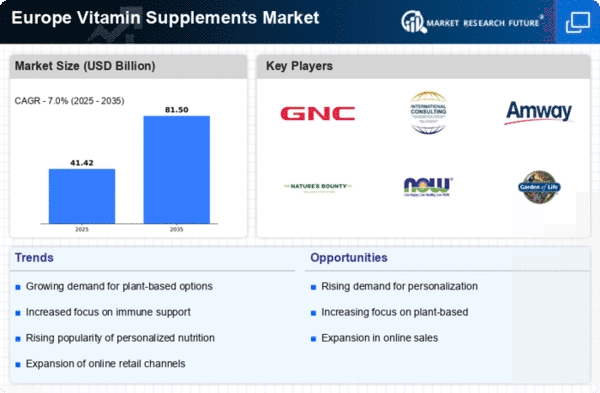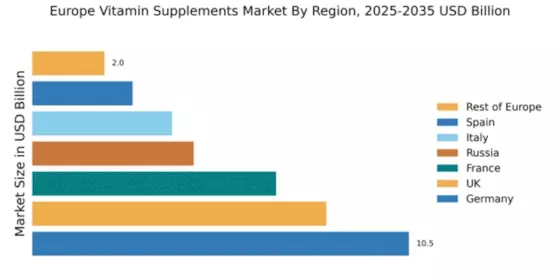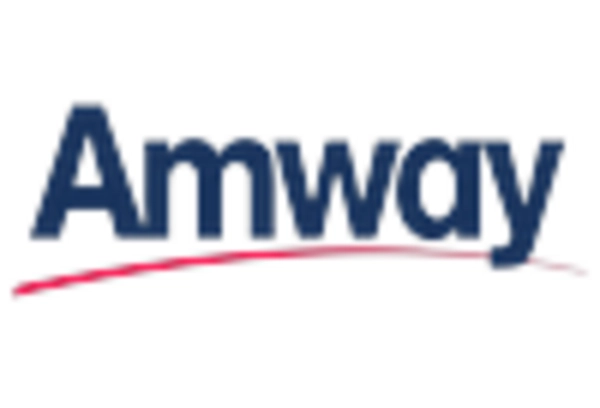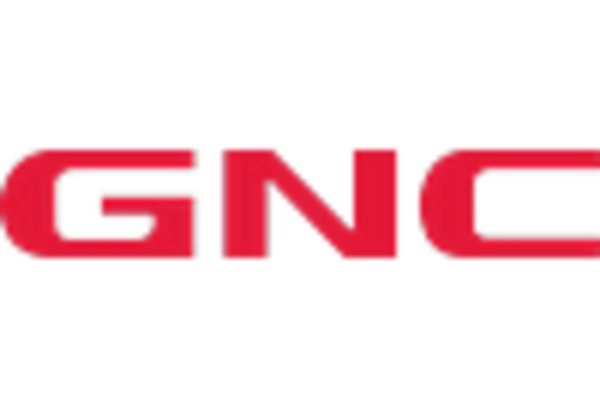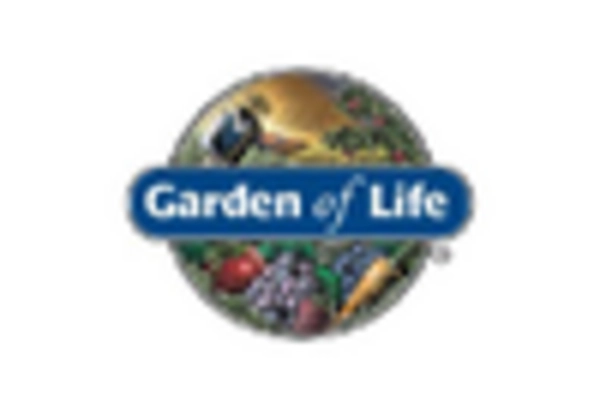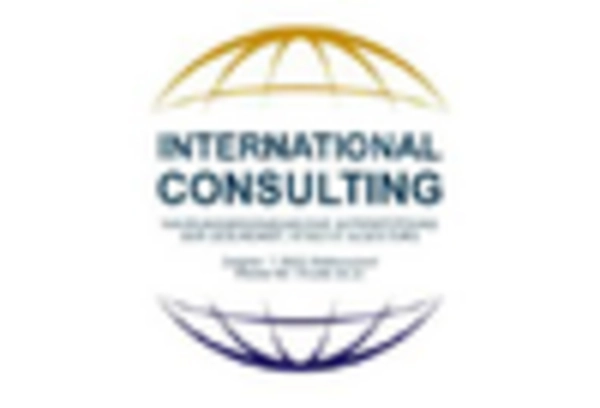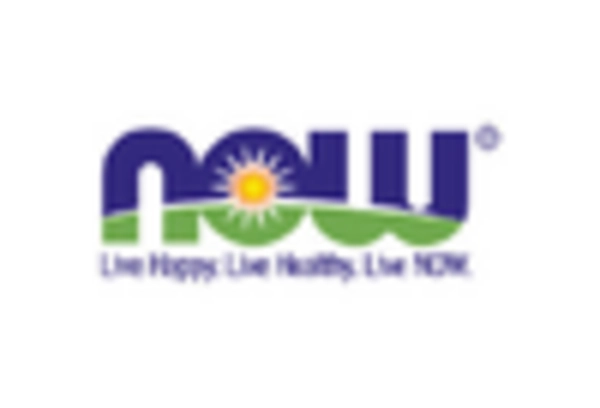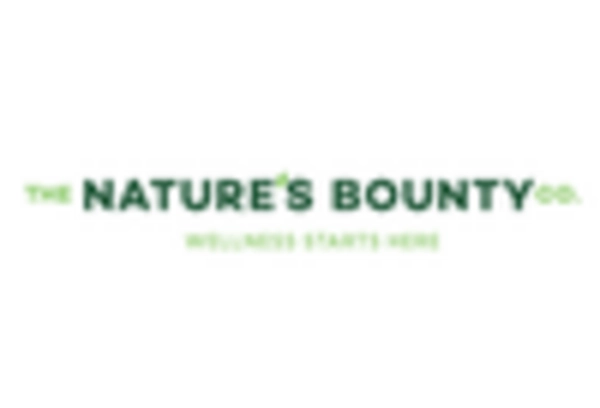Aging Population
The demographic shift towards an aging population in Europe is a critical driver for the vitamin supplements market. As the population ages, there is an increasing focus on health maintenance and disease prevention. Older adults are particularly susceptible to nutritional deficiencies, which can lead to various health issues. Consequently, the demand for vitamin supplements tailored to the needs of seniors is on the rise. Reports indicate that the segment of consumers aged 65 and above accounts for nearly 30% of the total vitamin supplement sales in Europe. This demographic trend suggests that the market will continue to expand as more individuals seek to enhance their quality of life through targeted supplementation.
E-commerce Expansion
The rapid expansion of e-commerce is transforming the vitamin supplements market in Europe. With more consumers turning to online shopping for convenience and variety, the digital marketplace for supplements is flourishing. Recent statistics show that online sales of vitamin supplements have increased by over 25% in the past year alone. This trend is particularly evident among younger consumers who prefer the ease of purchasing health products online. E-commerce platforms are also enabling brands to reach a broader audience, including niche markets that may have been underserved in traditional retail settings. As online shopping continues to gain traction, the vitamin supplements market is likely to experience significant growth, driven by the accessibility and convenience of digital purchasing.
Increasing Health Awareness
The vitamin supplements market in Europe is experiencing a notable surge due to the increasing health awareness among consumers. Individuals are becoming more proactive about their health, leading to a growing demand for dietary supplements that can enhance overall well-being. According to recent data, approximately 60% of Europeans are now taking some form of dietary supplement, with vitamins being a significant portion of this market. This trend is driven by a desire to prevent chronic diseases and maintain optimal health, particularly among aging populations. As consumers seek to fill nutritional gaps in their diets, the vitamin supplements market is likely to see continued growth, with an emphasis on products that promote immunity, energy, and mental clarity.
Innovative Product Development
Innovation within the vitamin supplements market is a significant driver of growth in Europe. Companies are increasingly focusing on developing new formulations that cater to specific health needs and preferences. This includes the introduction of vegan, organic, and non-GMO supplements, which appeal to a growing segment of health-conscious consumers. Furthermore, advancements in delivery methods, such as gummies and effervescent tablets, are making vitamins more accessible and appealing. The market for innovative products is projected to grow by approximately 15% annually, reflecting the demand for diverse and effective supplementation options. As manufacturers continue to invest in research and development, the vitamin supplements market is poised for dynamic expansion.
Rising Interest in Preventive Healthcare
The vitamin supplements market is benefiting from a rising interest in preventive healthcare among European consumers. This shift towards proactive health management is prompting individuals to seek out supplements that can help mitigate health risks before they arise. Data indicates that nearly 70% of consumers in Europe believe that taking vitamins can prevent health issues, which is driving sales in this sector. The emphasis on preventive measures is particularly pronounced in urban areas, where lifestyle-related health concerns are more prevalent. As healthcare systems increasingly advocate for preventive strategies, the vitamin supplements market is likely to see sustained growth, with consumers prioritizing products that support long-term health.


